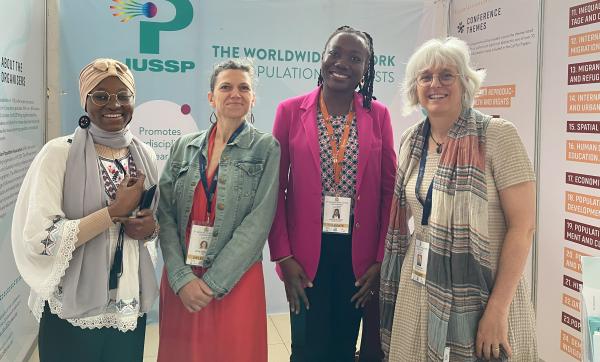9th African Population ConferenceLilongwe, Malawi, 20-24 May 2024
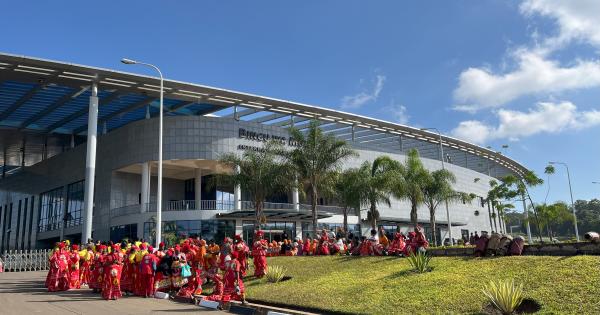
The opening ceremony welcoming addresses by the President of the Republic Malawi, Dr Lazarus McCarthy Chakwera, the Prime Minister of Iceland, Mr Bjarni Benediktsson, and UAPS President, Donatien Beguy evoked the conference theme. With 40% of Africa’s population projected to be under the age of 15 by 2030*, Bjarni Benediktsson, noted that Africa’s youth will shape the future of the continent and likely the world. The President of Malawi reminded the participants that Africa’s youthful and enterprising population is a resource to harness and urged conference delegates to focus on constructive recommendations to “leverage Africa’s demographic dividend by nurturing, empowering, and deploying our people.” On a more somber note, the President of UAPS, Dr Donatien Beguy noted that Africa is off track in achieving 16 out of the 17 SDGs due to underinvestment in human capital, gender inequality and poor governance across the continent. Climate crises, armed conflict, and COVID had further hampered progress towards achieving sustainable development. The conference was an opportunity for researchers to engage with policy makers and discuss evidenced-based recommendations for achieving sustainability.
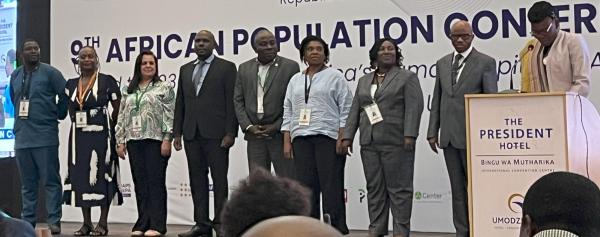 New UAPS Council.
The IUSSP Panel on Rethinking Family Planning Measurement with a Reproductive Justice and Rights Lens co-organized a side session on Thursday, May 23 on "Family Planning (FP) Measurement Reimagined" in collaboration with the AFIDEP Team-Up research project on traditional methods. The session was chaired by Naa Dodoo (AFIDEP), who with Nurudeen Alhassan (AFIDEP) presented the results of their research project on traditional methods. The presentation provided useful background to the report on deliberations from the IUSSP Panel’s March Mombasa meeting to develop new, more person-centered FP measures, which were presented by Jamaica Corker, Abdoul Moumouni Nouhou (Panel Member), Tosin Oni, and Mahesh Karra. Approximately 30 conference delegates attended the session including sexual reproductive health researchers, people working on FP programming, policy makers, and parliamentarians from the region. The attendees were especially interested in the new FP measures and posed many questions. There was also enthusiasm expressed during the Q&A about adding new and different measures in the DHS and other surveys.
IUSSP was present with an exhibit booth to advertise the IPC2025 Conference and distribute copies of the call for papers. IUSSP Executive Director Mary Ellen Zuppan met many conference participants, especially students, many of whom joined IUSSP as student members during the conference. Several IUSSP current Council members – Akanni Akinyemi, Nkechi Owoo, and Geraldine Duthé – were in attendance and spent time at the booth, encouraging their students and colleagues to become members and submit an abstract for IPC 2025.
From left to right: Mariam Bougma, IUSSP Council members Geraldine Duthé and Nkechi Owoo, and IUSSP Executive Director Mary Ellen Zuppan.
UAPS and the Conference organizers should be congratulated on organizing a successful conference that brought in parliamentarians and policymakers from across the continent to engage with researchers in many of the sessions. The only regret was the absence of many of the presenters listed on the programme who were unable to travel to Lilongwe. We look forward to the next African Population Conference.
For more information about the 9th African Population Conference: *2022 United Nations. DESA, Population Division. World Population Prospects 2022 (Sub-Saharan Africa - Percentage of population under 15 years of age) 
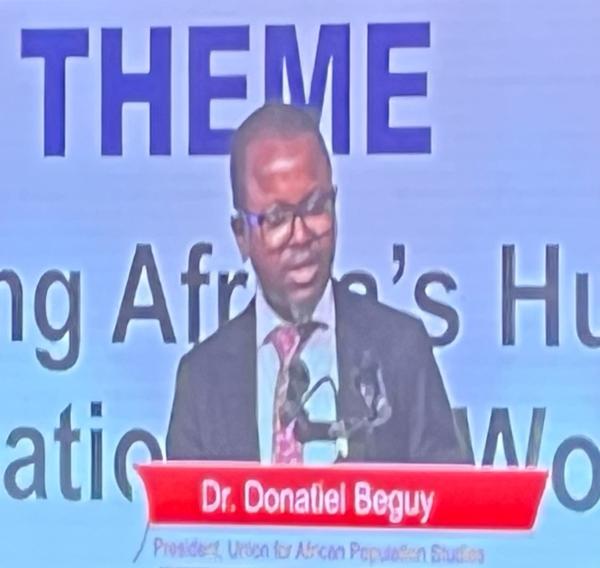
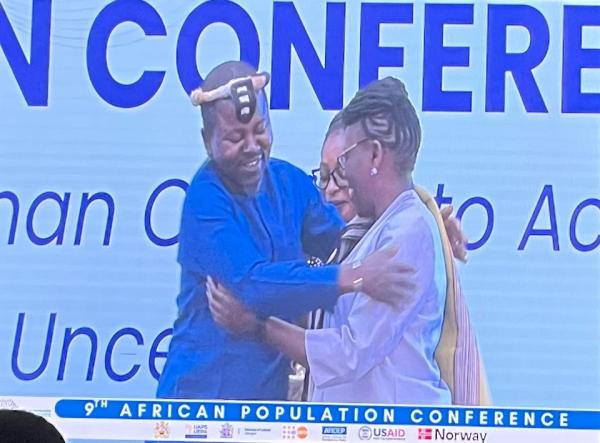
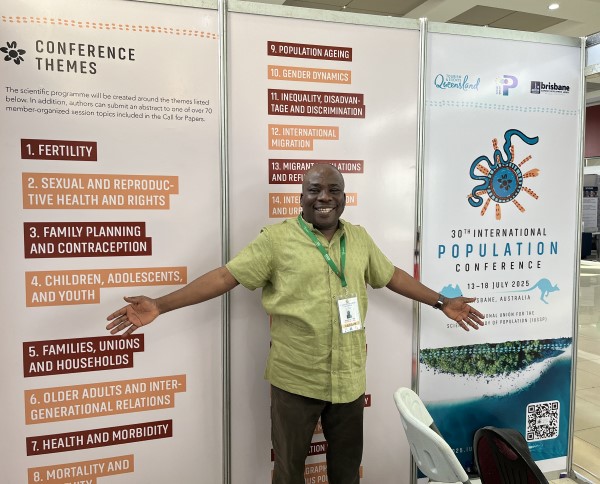
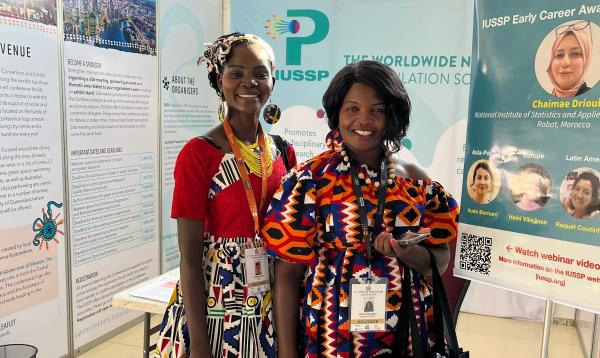
|

